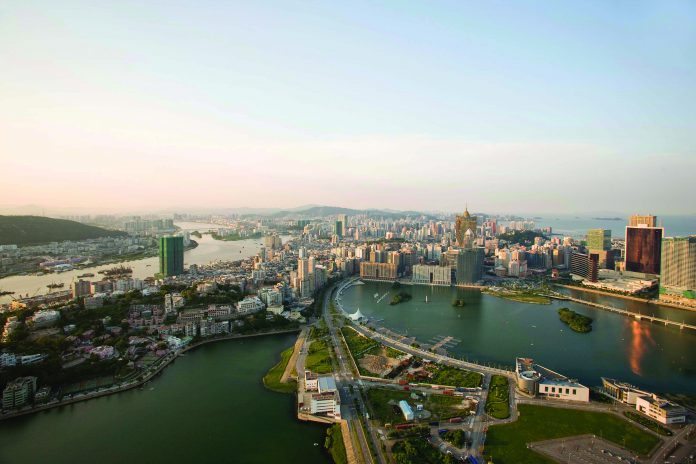Differences of opinion regarding the application of the Basic Law do not call into question the merits of the mini-constitution adopted 25 years ago but the foundations upon which it is based.
One can almost say that the Law is good, but it is a Law . . . impossible.
“As the introduction of the ‘One Country, Two Systems’ formula is unprecedented in the PRC’s history, its actual implementation in Hong Kong and Macau is highly controversial,” wrote Professor Herbert S. Yee in 2014
According to the author of the book Macau in Transition: From Colony to Autonomous Region (2001), when we ask which is more important – ‘One Country’ or ‘Two Systems’ – the “pro-Beijing political groups in Macau and Hong Kong answer ‘One Country’ is a prerequisite for ‘Two Systems’ and hence national interests override local SAR interests.”
On the other hand, emphasises the author, “more neutral or pro-democracy local political groups stress the importance of distinguishing the SAR capitalist system from the Mainland’s socialist system.”
Professor Yee concludes: “Arguably, ignoring the difference between the two systems would, sooner or later, render Hong Kong or Macau becoming just another Chinese city like Shenzhen and Zhuhai.”
This sinologist, specialised in the thematic of Macau, understands, for example, that “the principle of ‘Macau people ruling Macau’ is not fully realised because Macau citizens cannot elect their Chief Executive and the partially elected legislature has been significantly weakened by the MSAR Basic Law.”
As a direct consequence of this fact, “can the Chief Executive obtain a high degree of political autonomy from the PRC central government in Beijing?” asks Yee. He himself replies in The Theory and Practice of One Country, Two Systems in Macau (2014): “The answer, unfortunately, is [in the] negative. Not being universally elected by Macau citizens, the Chief Executive does not have the mandate of the Macau people; his source of power comes solely from Beijing. In theory and in reality, he is only responsible to the PRC central government in Beijing and not to the Macau people,” giving as an example the fact that the two Chief Executives “never voiced any opposition to or dissatisfaction with Beijing’s policies towards Macau, regardless of whether those policies would benefit Macau’s interests.”
Completely different opinions are expressed by Chinese academics or those attached to the Centre for Studies One Country, Two Systems (Polytechnic Institute of Macau).
“The principle of ‘Macau people ruling Macau’ is not fully realised because Macau citizens cannot elect their Chief Executive and the partially elected legislature has been significantly weakened by the MSAR Basic Law” – Herbert S. Yee
“The ‘One Country’ principle gives Hong Kong and Macau residents not only responsibilities and obligations but also glory, pride, rights, freedom and new opportunities. Hong Kong and Macau, in order to avoid marginalisation in their development, have to fully exploit the connotation and values of the ‘One Country’ principle, taking advantage of the opportunities brought about by this principle. It has to be realised that the ‘One Country’ principle is not a charge, but an asset of Hong Kong and Macau, a new advantage and a new point of growth,” wrote Che Sei Tak, Assistant Researcher of the Centre (2013).
Qiao Xiaoyang, Chairman of the Law Commission of the Standing Committee of the National People’s Congress, also spares no adjectives: “We can conclude from the experience gained in the Macau SAR that mutual co-operation and mutual monitoring between the organs of political power is an important factor in the achievement of good management of the MSAR. This is the only way in which the high degree of autonomy conferred by the Basic Law can be used to develop the territory for the wellbeing of the population.”
Change of discourse
“We have to firmly implement the ‘One Country, Two Systems’,’ Hong Kong is ruled by its people’,’ Macau is ruled by its people’, [with a]high level of autonomy’ and deal with matters in the strict terms of the Constitution,” said Prime Minister Li Keqiang, in the government’s work report for the 3rd meeting of the National People’s Congress (2015). In the government’s work report last year, the same Chinese leader reiterated the notion that the constitution should be strictly adhered to.
It means, not first the Basic Law.
According to Zhao Guoqiang, Visiting Professor of the Department of Law, University of Macau, “the change of mention of the Basic Law for the Constitution is not a mere linguistic question, but rather has a strong practical connotation, as well as a rational theoretical coherent.”
Professor Zhao understands that Li Keqiang’s words come to Hong Kong, where “there is a group that is taking advantage of an exaggerated, solipsistic, frivolous argument to mislead the people of Hong Kong, to challenge the authority of the national constitution [via] ‘localism’, denying the existence of China’s fundamental law.”
Zhao Guoqiang concludes that “undoubtedly, the Central Government’s change of discourse, now to mention the national Constitution, is a powerful reaction to the audacity of this bunch, a kind of severe measure to put the scare in order. The following reasoning goes beyond the shadow of a doubt: in the context of ‘two systems,’ the national Constitution does not accept questioning, nor does it admit of challenge.”
























